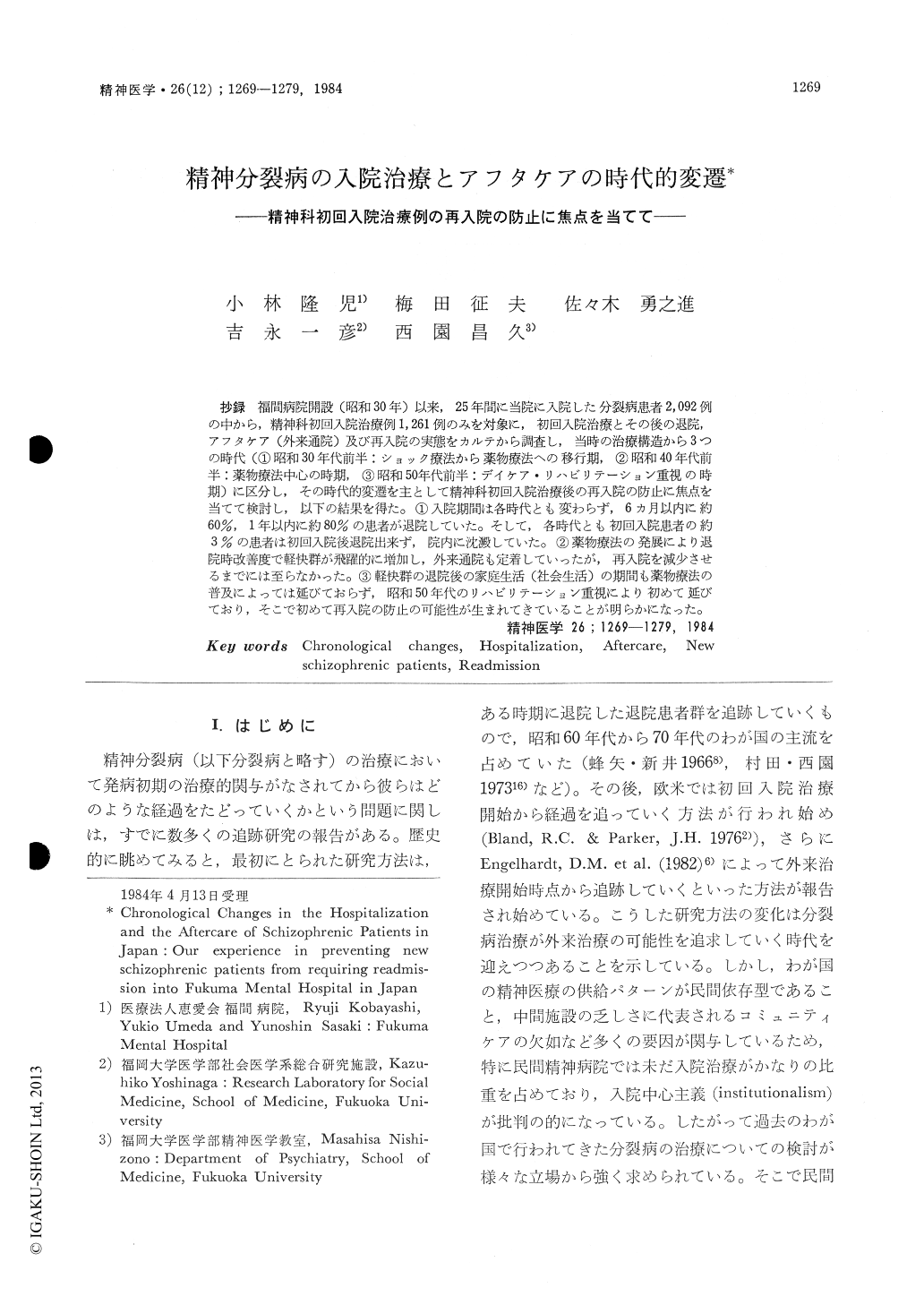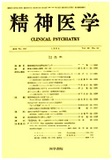Japanese
English
- 有料閲覧
- Abstract 文献概要
- 1ページ目 Look Inside
抄録 福間病院開設(昭和30年)以来,25年間に当院に入院した分裂病患者2,092例の中から,精神科初回入院治療例1,261例のみを対象に,初回入院治療とその後の退院,アフタケア(外来通院)及び再入院の実態をカルテから調査し,当時の治療構造から3つの時代(①昭和30年代前半:ショック療法から薬物療法への移行期,②昭和40年代前半:薬物療法中心の時期,③昭和50年代前半:デイケア・リハビリテーション重視の時期)に区分し,その時代的変遷を主として精神科初回入院治療後の再入院の防止に焦点を当てて検討し,以下の結果を得た。①入院期間は各時代とも変わらず,6カ月以内に約60%,1年以内に約80%の患者が退院していた。そして,各時代とも初回入院患者の約3%の患者は初回入院後退院出来ず,院内に沈澱していた。②薬物療法の発展により退院時改善度で軽快群が飛躍的に増加し,外来通院も定着していったが,再入院を減少させるまでには至らなかった。③軽快群の退院後の家庭生活(社会生活)の期間も薬物療法の普及によっては延びておらず,昭和50年代のリハビリテーション重視により初めて延びており,そこで初めて再入院の防止の可能性が生まれてきていることが明らかになった。
Psychiatric care in Japan has developed in a large scale since the mid-50's, and this is mainly due to private mental hospitals, which have much increased in number. However such an increase has resulted in an "institutionalism" of the patients, and aftercare system has been considered of more importance recently. We discussed how we have Prevented the need for readmission of new schizophrenic patients according to the chronological changes in the psychiatric treatment used.
The subjects are composed of the schizophrenics admitted for the first time into mental hospitals, which number 1,261 cases (60.3% of all the schizophrenics admitted into the hospital). They were admitted between 1955-1979. These 25 years were divided into three periods, according to the treatment employed. (1) From mid-50's : from shock therapy to pharmacotherapy, (2) from mid-60's : pharmacotherapy mainly and (3) from mid-70's : the daycare and rehabilitation systems have been realized to be of more importance. The results are as follows :
A. About 3% of the admitted patients in each decade remain hospitalized almost permanently, thereby forming the major factor of "institutionalism".
B. The development of pharmacotherapy has resulted in a great increase in patients discharged with "fair outcome". And it has made the duration of attendance as an outpatient after being discharged much longer than before. But it could not lessen the subsequent readmissions in number.
C. The patients classed as "fair" could live a life within the community for a longer time due not only to the development of pharmacotherapy but also to the improved rehabilitation and daycare system.

Copyright © 1984, Igaku-Shoin Ltd. All rights reserved.


